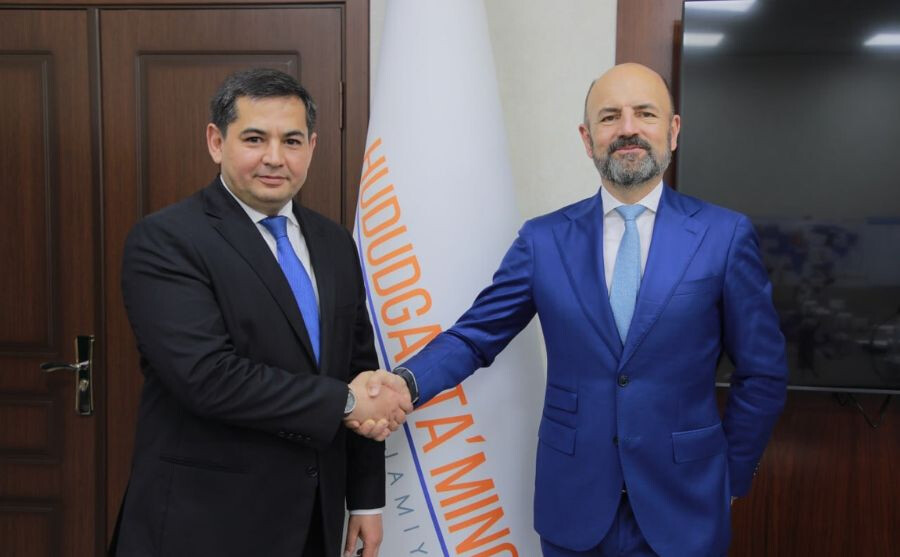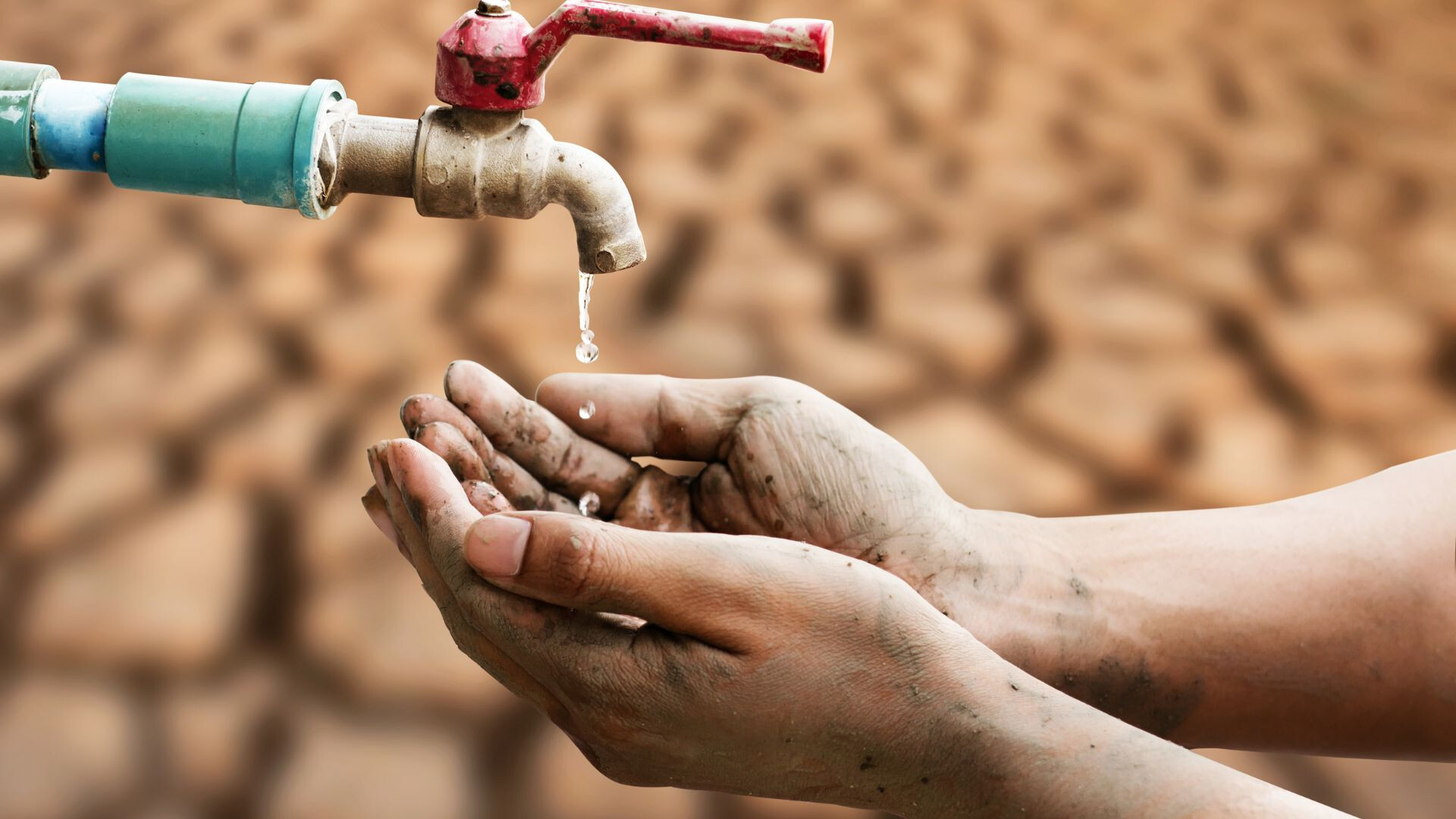

4/9/2025



The greatest challenge of the 21st century, for all sectors that have a real impact on the environment, economy and society, is sustainability. Like a mantra, the sustainable turn has permeated every social and cultural sphere, becoming the fundamental scenario underlying the business strategies of the world's largest companies. The Utilities sector, in this sense, has taken an extra step during 2023. Distributors, in fact, have gradually, but also quickly, started the process of digitalisation all their activities, both in the field and remotely, in order to reduce the negative impact on the environment, economy and people.
The latest emergency to set off alarm bells throughout Europe, has been water. In addition to the already well-known poor capacity of the aging infrastructure to prevent water leaks into the network, there is the now thorny issue of drought, of which Spain, of all European nations, is known to be the worst affected victim (in Catalonia, for example, reservoir capacity stands at 27 percent according to the latest annual Copernicus report). Among the areas most affected by water shortages are Catalonia and Andalusia, where more than 600 municipalities are under rationing in the early morning hours due to the exceptionally prolonged drought , also caused by high temperatures. In the province of Málaga, for example, taps have been imposed to be turned off between 00:00 and 07:00 in order to allow municipal reservoirs, which must meet water demand for the remaining hours of the day, to be filled. In Catalonia, restricted towns and villages have had to reduce per capita consumption to 230 liters per day, down from the 250 introduced in what authorities called a "pre-alert" situation. According to scholars, climate change, which is at the root of the water emergency in Spain as in Europe, is leading to a clear alteration of the biosystem, with serious repercussions on local flora and fauna. It is estimated that up to 27 million Spaniards will face water shortages between now and 2050.
In response to a situation whose figures are becoming more alarming every day, Spain, Italy and France, the most drought-stricken countries in Europe, are using various methods to alleviate the water stress of residents and farmers. Spain, specifically, has launched a 12 billion euro program to build desalination plants and improve water infrastructure.
We need structural responses and constant investment
Spanish Environment Minister Teresa Ribera said after Catalan authorities declared a "state of exception" for water shortages.
The most effective measures for distributors to address water losses, while also meeting all the other KPIs imposed by European measures for a more sustainable society, obviously go through the digitisation of all processes. Smart Metering and Field Service Management, in fact, are the two biggest digital revolutions in Utilities in recent years, whose positive impact on the environment and people cannot be indifferent to those who need to invest in their infrastructure. In this regard, Ministerial Ordinance ICT/155/2020, which regulates the metrological control of measuring instruments, has called for, among other actions, the replacement of all water meters over 12 years old, gas meters over 20 years old, and electric meters over 15 years old. Although Smart Metering is not yet mentioned in the Ordinance, there have been signs of the Authority pushing, starting in the second half of 2021, for the adoption of smart meters in the gas and, especially, water sector.

The smart meter retrieves, remotely, a much higher number of readings (up to one every 15 minutes, depending on the service) and sends them much more frequently (even several times a day) than a traditional meter, increasing the detail of consumption readings, making readings available to distributors and vendors more promptly (even within 24 hours) and significantly eliminating reading errors. The smart meter also gives the possibility of collecting a large amount of additional data in addition to consumption data, such as diagnostic data, and allows customers to consult consumption data in near real time, causing the meter to send notifications in the event of anomalies and eliminating the risk of reading errors.
More remote readings also lead to enormous savings in operating costs: thanks to the possibility of remote management of a large number of activities, it will no longer be necessary to request the intervention of an on-site technician, but operations can be carried out remotely by the distribution company, increasing the level of service to the end customer and reducing the cost of execution. The remoteisation of part of the field activities (readings, meter interventions, etc.), therefore, reduces the need to move teams and vehicles, with consequent savings in terms of emissions.
On the economic front, thanks to the smart meter, billing is based on actual consumption data, resulting in improved quality and timeliness of billing. Telemanagement, among other things, enables functions that allow prompt action to be taken against arrears through the use of switches and valves that can be managed remotely. The reduction of intervention time in cases of arrears leads to a faster recovery of revenue than in the previous state of the art. Finally, the large quantity and quality of data available allows greater access to knowledge of one's own consumption by customers, as well as by vendors. This represents the key to a more conscious and sustainable management of utilities and thus of energy and water resources.
It is precisely with this context in mind that Terranova develops its software. TAMM, already awarded by iAgua as Digital Product of the Year at the last Smart Water Summit in Madrid, is a Digital Enablement Platforms that supports Smart Metering processes in a specialised way without constraints on communication technologies and device models used in the field, meeting the economic needs of all distributors who already have their own established meter fleet. In order to support process-oriented and not device-oriented Smart Metering, Terranova sets its sights on the digital transformation of activities, and not on simple automation.
The main benefits for water managers that Terranova enables with its products are:

Smart Metering, however, as already mentioned, is not the only field of application for digital tools aimed at making utilities more sustainable, both economically and socially. The world of field operations is undergoing an increasingly radical transformation every day. Increasing customer expectations, labour shortages, evolving technology and increasingly complex work have changed the way organisations have to run their operations. Many have already adopted new technologies in an attempt to keep up, but there are still numerous problems with planning, allocation, communication and data collection in the field. The fundamental way forward, therefore, is to optimise all operational processes, for which many organisations still face several bottlenecks. Indeed, the various new technologies aimed at better supporting their field service operations have not met expectations, especially because they were implemented without a well-planned strategy.
To all this, it should be added that the general emission figures are less and less comforting. Of all greenhouse gas emitting sectors, transport takes up more than a quarter of the pie (28.5%), with road transport accounting for the majority (20.5%). By optimising field activities, organising interventions and planning operations in a more systematic way, the impact on the atmosphere can also be drastically reduced, eliminating avoidable displacements and thus facilitating the work of all operators.
To date, 25% of the interventions in the field have a negative outcome on the first attempt. The main reasons are that:
This consequently generates customer dissatisfaction, failure to meet service KPIs, dissatisfaction of the operators themselves, who fail to do their job to the best of their ability, and waste of resources.
On this front, too, Terranova is at the forefront, thanks to the development of TWFM, the software for Field Service Management which, with the innovative support of Artificial Intelligence, enables the control of the entire management process of field activities, work teams and agendas. With this approach, the tangible results already achieved are:
Dedicated to the utilities world, TWFM is a platform natively engineered around company processes. Its customisable dashboard allows real-time monitoring of the progress of activities and the performance of operators. In addition, it is a route optimiser and enables efficient planning of operators' agendas and activities in the field through AI-based algorithms. It also has specific tools to identify the available and most suitable field operator to carry out the work, and automates field activities through its mobile application (TWFA), which supports operators in collecting data and correctly accounting for the materials used for the work performed.
The road to digitisation of utilities is already mapped out and can no longer be avoided. Climate change and the need to meet the economic, social and environmental needs of the world must be approached in the right way. Innovating business to protect revenues and, at the same time, preserving the planet and those who inhabit it are no longer irreconcilable goals.

Want to know more?
We’d be happy to talk more in detail about your needs and explore how we can become your ideal partner, to assist you in your business venture of innovation, digitization and sustainability